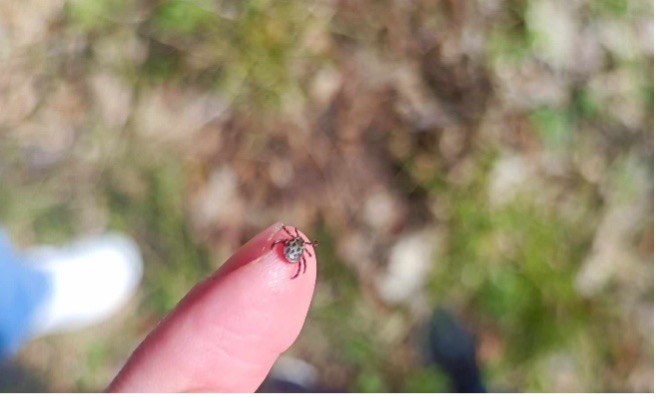Carriers of microbial communities like symbionts, commensals and pathogens, ticks are hematophagous arthropods responsible for several important human, and animal diseases. The geographical distribution of ticks is expanding worldwide, which increases the risk of tick-borne diseases emergence in naïve areas. Ticks’ dispersal over long distances occurs concomitantly to vertebrates’ movements via migratory birds for example. In Eastern Europe, the Danube Delta is a strategic wetland for birds migrating between Europe and Africa, favoring the emergence of pathogens through exchanges between animals and arthropods. Thus, this study aims at (i) updating the description of tick species infesting the Danube Delta ecosystem to identify the introduction of exotic species, (ii) characterizing the viral communities infecting ticks in the Danube Delta, and (iii) studying tick-borne viral infections in domestic and wild animals. Methods: This study investigates and deciphers the ecological cycle of new tick-borne arboviruses circulating among wild and domestic animals in the Romanian part of the Danube Delta, which is a hotspot for tick exchanges between birds, rodents, and livestock. It is conducted within the framework of a solid and well-established collaboration between the ROVETEMERG Laboratory of the Iasi Faculty of Veterinary Medicine (Romania) and the Pathogen Discovery laboratory of Institute Pasteur (France) within the Pasteur International Center for Research on Emerging Infectious Diseases (PICREID).
This website uses cookies to improve your experience. We'll assume you're ok with this, but you can opt-out if you wish. Read More


